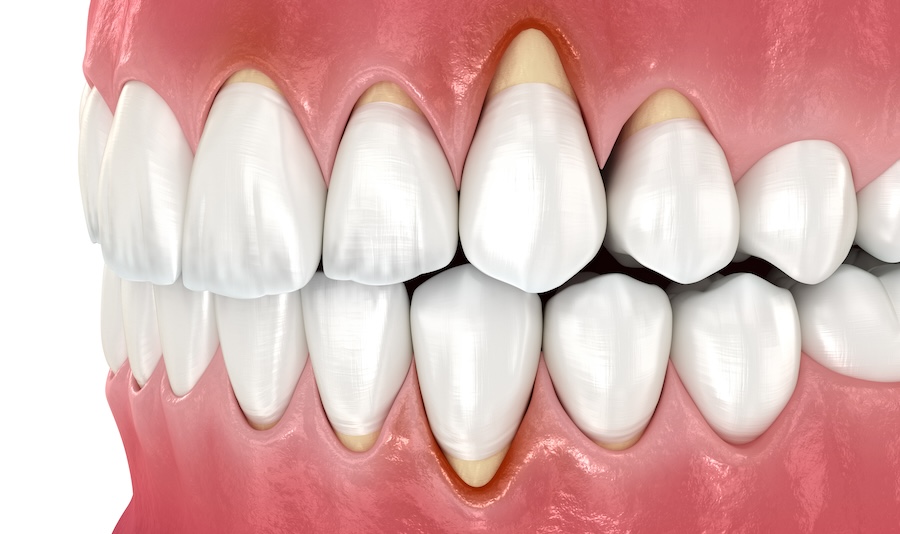
Have you noticed your teeth looking a little longer lately? Or maybe you’ve been feeling extra sensitivity when enjoying your favorite ice cream or sipping hot coffee? These could be signs of gum recession, a common condition that often sneaks up on people without warning. But what exactly is recession, and why does it matter for your dental health? Let’s dive in.
What is Gum Recession?
Gingival recession happens when the gum tissue that surrounds your teeth begins to pull back, exposing more of the tooth or even its root. This process can lead to sensitivity, increased risk of cavities, and, in severe cases, tooth loss. Gum recession doesn’t happen overnight—it’s a gradual process that often goes unnoticed until it becomes a bigger problem.
What Causes Gum Recession?
Aggressive Brushing: Brushing too hard can wear away gum tissue. Think of it as over-scrubbing delicate fabric—it does more harm than good.
Poor Oral Hygiene: Plaque buildup can lead to gum disease, which is one of the leading causes of gum recession.
Teeth Grinding (Bruxism): Grinding or clenching your teeth can put undue pressure on your gums, causing them to recede over time.
Misaligned Teeth: An uneven bite can create extra stress on certain areas of your gums.
Tobacco Use: Smoking or chewing tobacco reduces blood flow to the gums, making them more prone to damage.
Why Does Gum Recession Matter?
When your gums recede, they leave your tooth roots exposed. Unlike the tops of your teeth, the roots aren’t covered by enamel, making them more vulnerable to decay and sensitivity. Gum recession can also lead to loose teeth and even bone loss if left untreated.
How Can You Prevent or Treat Gum Recession?
The good news is that gingival recession can often be prevented or managed with proper care. Here are some tips:
Brush Gently: Use a soft-bristled toothbrush and light pressure when brushing.
Floss Daily: Flossing removes plaque from areas your toothbrush can’t reach.
Wear a Nightguard: If you grind your teeth, a custom nightguard can protect your gums and teeth.
Visit Your Dentist Regularly: Professional cleanings and checkups can catch early signs of gingival recession before it progresses.
Consider Gum Grafting: For advanced cases, gum grafting can restore lost tissue and protect your teeth.
Protect Your Gums at High Point Dentistry in Elgin & Schaumburg, IL
At High Point Dentistry, our experienced team of dentists in Elgin and Schaumburg, IL is dedicated to helping you maintain healthy gums and teeth. If you’re concerned about recession or experiencing sensitivity, don’t wait—schedule a consultation with us today. Together, we’ll create a personalized plan to keep your gums healthy and your smile strong for years to come.

